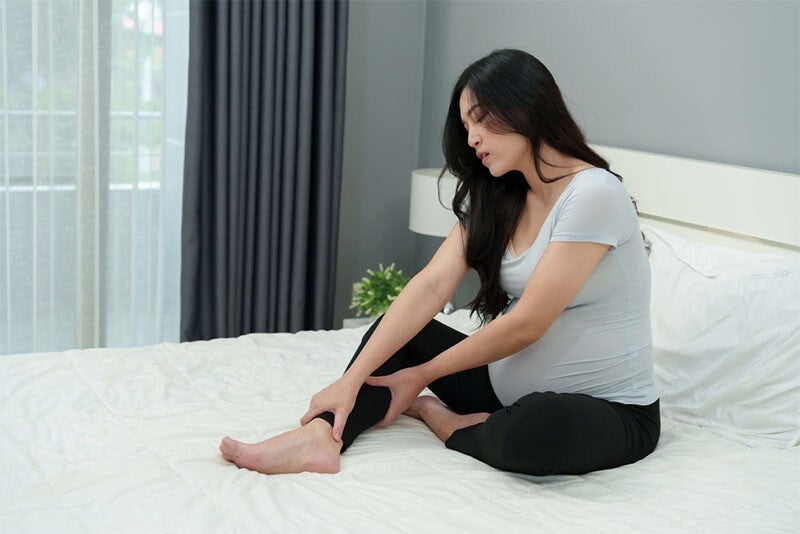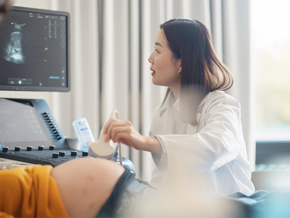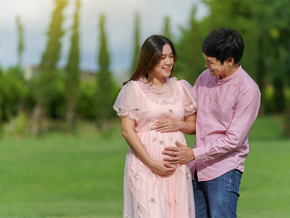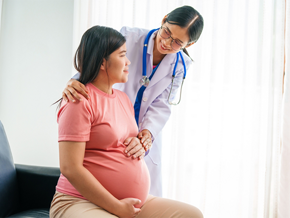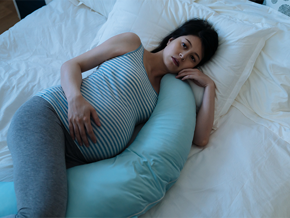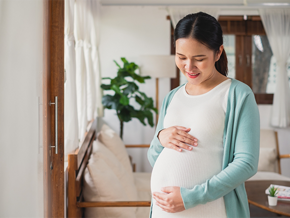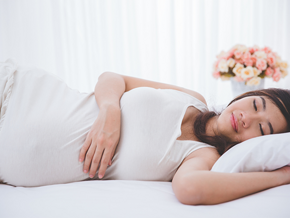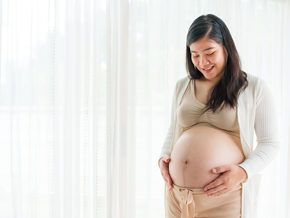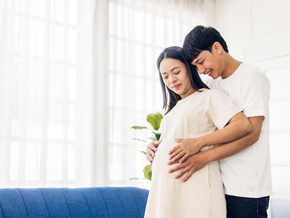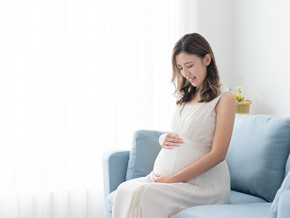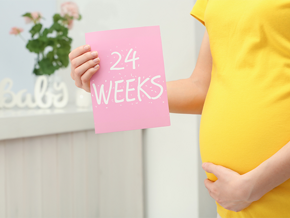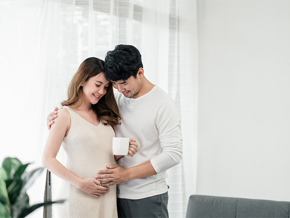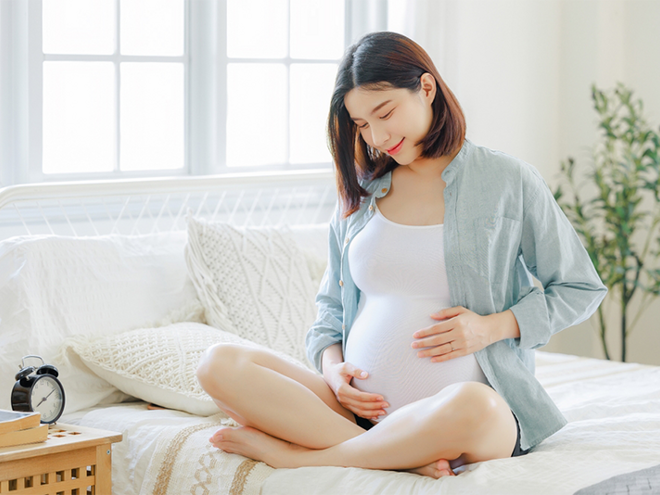
Your first pregnancy is an amazing time, but it also brings a wave of new sensations and questions! With so many changes happening, it can be tricky to know what’s typical and what needs a closer look. That's especially true when it comes to understanding preeclampsia symptoms.
Preeclampsia can show up in different ways, and it’s helpful to know what to look out for. Some are signs that your doctor will look for during your check-ups, like elevated blood pressure that occurs without you feeling it. Others are symptoms, which are the changes you might experience, such as a new, persistent headache or sudden swelling of the hands and feet.
Learning the signs and symptoms can help you avoid potential problems early, so that you and your baby get the best possible care.
Who’s at Risk of Preeclampsia?
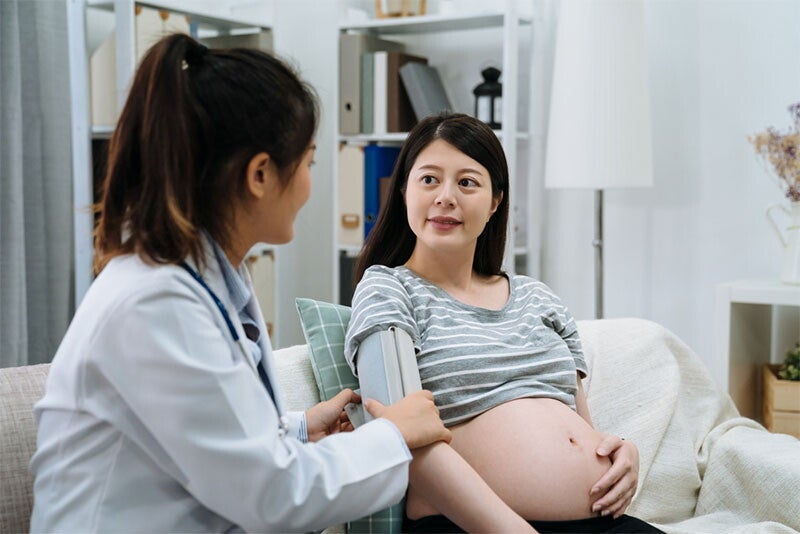
First-time moms and those with prior hypertension face higher risk of preeclampsia.
Preeclampsia is a serious complication that can develop after 20 weeks of pregnancy, though it can sometimes occur earlier or even after delivery (known as postpartum preeclampsia). A key feature is high blood pressure (hypertension) that begins in pregnancy, even if you didn't have it before, as well as signs that your liver and kidneys are under stress.
Health experts still don’t know what causes preeclampsia. But they believe it’s related to problems with how the placenta develops.
Recent medical reviews and a 2024 Philippine study show that preeclampsia often affects first-time moms. However, a 2022 study published in Pregnancy Hypertension also shows that having a history of preeclampsia increases your risk in later pregnancies.
That’s why attending all your regular prenatal checkups is so important because your doctor can monitor for any early signs.
Here are other factors can increase the risk of preeclampsia:
- A personal or family history of preeclampsia
- Pre-existing conditions like chronic high blood pressure, kidney disease, or diabetes
- Carrying twins or more
- Being older than 35
- Obesity (a BMI of 30 or higher)
- Autoimmune disorders like lupus
Understanding Signs of Preeclampsia
Apart from hypertension, preeclampsia symptoms include severe headaches, vision changes, and sudden swelling in the ankles.
Your ob-gyn will check for two key signs of preeclampsia: high blood pressure (typically 140/90 mmHg or higher) and protein in your urine based on urinalysis results.
However, you might already feel preeclampsia symptoms but might dismiss them as a typical part of pregnancy. These include:
Severe, persistent headaches
These are often intense, may not improve with simple remedies, and feel different from typical headaches.
Vision changes
Watch for blurred vision, seeing spots or flashing lights, or new sensitivity to light.
Upper abdominal pain
Pay attention to any new pain, especially if it's under your ribs on your right side. It can sometimes be mistaken for severe heartburn.
Sudden nausea or vomiting
Tell your doctor if you suddenly feel very sick to your stomach or start vomiting (and it's not morning sickness), especially later in your pregnancy.
Significant swelling (edema)
Be alert for sudden swelling in your hands and face (especially around your eyes), as well as feet and ankles that swell much more than usual or very quickly.
Rapid weight gain
For instance, you gained several pounds (more than 2-3 pounds or about 1-1.5 kg) in just a week.
Shortness of breath
Seek immediate urgency care if you suddenly feel more breathless than usual, especially if it's new or happens when you're resting.
Decreased urine output
You noticed you're peeing less often or in much smaller amounts.
Call your doctor if you experience any of these symptoms, especially if they’re new or suddenly worsen.
Some women might also experience preeclampsia with severe features, which means symptoms might be more intense or accompanied by more changes that your doctor can detect. Early detection is crucial since conditions like HELLP syndrome (a severe form of preeclampsia) can develop quickly.
How to Prevent Preeclampsia
Since the cause of preeclampsia is unknown, you can't prevent it. But there are steps you can take to help reduce your risk:
- Attend all prenatal appointments because regular monitoring is key.
- Work with your doctor to control high blood pressure, diabetes, etc., before and during pregnancy.
- Focus on balanced meals rich in fruits, vegetables, lean protein, and whole grains. Limit processed foods and excessive salt.
- Get regular exercise if approved by your doctor.
- Follow your doctor’s recommendations for pregnancy weight gain.
Knowing When to Seek Help
As a first-time mom, you are your own best advocate. By understanding these preeclampsia symptoms and risk factors, you're better prepared for a safe pregnancy. Don't hesitate to call your doctor if anything feels off; acting quickly makes all the difference for you and your baby.
Wondering what other parents are talking about? Join the ParentTeam Moms and Dads Facebook group and share your experiences or ask questions about preeclampsia symptoms.
References
Dwarkanath, Pratibha, Alfa Muhihi, Christopher R Sudfeld, Blair J Wylie, Molin Wang, Nandita Perumal, Tinku Thomas, et al. “Two Randomized Trials of Low-Dose Calcium Supplementation in Pregnancy.” New England Journal of Medicine 390, no. 2 (January 10, 2024): 143–53. Accessed May 19, 2025. https://doi.org/10.1056/nejmoa2307212.
Ghulmiyyah, Labib, and Baha M. Sibai. 2024. "Preeclampsia." In StatPearls [Internet]. Treasure Island, FL: StatPearls Publishing. Updated January 2024. Accessed May 19, 2025. https://www.ncbi.nlm.nih.gov/books/NBK570611/.
Khan, Bisma, Razia Allah Yar, Ayesha Khan Khakwani, Sajilah Karim, and Hafiz Arslan Ali. “Preeclampsia Incidence and Its Maternal and Neonatal Outcomes With Associated Risk Factors.” Cureus, November 6, 2022. Accessed May 19, 2025. https://doi.org/10.7759/cureus.31143.
Kumsa, Henok, Esuyawkal Mislu, Mulugeta Wodaje Arage, Biruk Beletew Abate, Moges Beriye, Mihretab Mehari Reda, and Nigus Bililign Yimer. 2025. "Effects of calcium supplementation on the prevention of preeclampsia: an umbrella review of systematic reviews and meta-analyses." Frontiers in Medicine 12:1434416. Published March 5, 2025. Accessed May 19, 2025. https://doi.org/10.3389/fmed.2025.1434416.
Mayo Clinic Staff. 2022. "Preeclampsia." Mayo Clinic. Last updated April 15, 2022. Accessed May 19, 2025. https://www.mayoclinic.org/diseases-conditions/preeclampsia/symptoms-causes/syc-20355745.
MedlinePlus. 2024. "Preeclampsia." Last reviewed April 16, 2024. Accessed May 19, 2025. https://medlineplus.gov/ency/article/000898.htm.
Preeclampsia Foundation. n.d. Accessed May 19, 2025. https://www.preeclampsia.org.
Ramos, R. G. S., & Velayo, C. L. S. "A 5-year review of preeclampsia screening in a tertiary private hospital in the Philippines: A retrospective cohort study. "Science and Engineering Journal, Special Issue 2024, 407-416. Accessed May 19, 2025. https://doi.org/10.54645/202417SupZPR-79
World Health Organization | Intervention. “Calcium Supplementation Before Pregnancy for the Prevention of Pre-eclampsia and Its Complications,” August 9, 2023. Accessed May 19, 2025. https://www.who.int/tools/elena/interventions/calcium-prepregnancy.
Zhu, Qing, Qin Yu, Mengyao Liu, and Yongqing Wei. 2024. "Effectiveness of Calcium Supplementation in the Prevention of Gestational Hypertension: A Systematic Review and Meta-analysis of Randomised Controlled Trials." Pregnancy Hypertension 38: 101174. Published November 29. Accessed May 19, 2025. https://doi.org/10.1016/j.preghy.2024.101174










